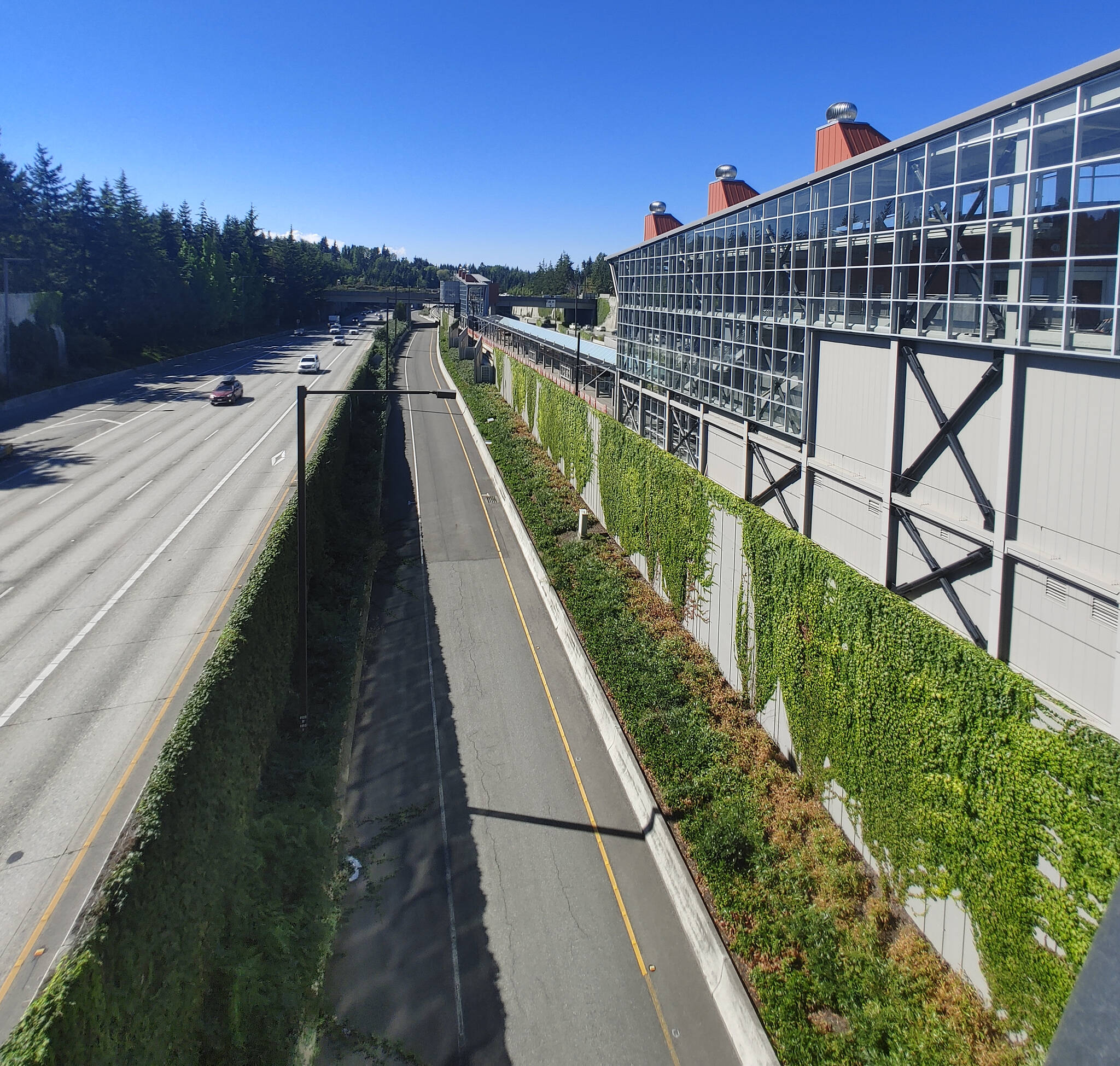By Olivia Sullivan and Andy Nystrom
The East Link Extension — featuring Mercer Island Station — is one of four Sound Transit projects facing delays due to construction challenges, according to a new report provided to the Sound Transit Board System Expansion Committee on Aug. 18.
These delays push back the projected opening dates for the East Link, Lynnwood, Federal Way and Downtown Redmond Link Extension routes. Signs of possible delays were tracked since April both due to nationwide issues, but also particular challenges at individual sites, according to Sound Transit.
For the East Link route, Sound Transit’s original plan was to open in mid-2023. Now, the agency estimates the project will be delayed by at least a year due to construction challenges.
Both the east and west sides of the I-90 floating bridge are facing delays due to issues with cast-in-place concrete plinths supporting the tracks. Problems have been identified with mortar pads, rebar placements and track fasteners, which the project contractor has agreed to fix by re-casting the plinths to ensure the long-term reliability and safety of the extension, according to Sound Transit. A forensic engineering firm determined the pre-cast concrete blocks supporting tracks on the bridge do not need to be replaced, according to a preliminary investigation done in July and August.
“While the recently-announced delays to the expansion of the light rail system are unfortunate, the city keenly appreciates the difficult construction environment everyone in the region has faced in the last few years,” said Mercer Island City Manager Jessi Bon. “The city is well aware of how the pandemic and other global factors such as supply-chain issues have delayed projects across the region, and ensuring a safe, and long-lasting system is more important than opening the system for use at any particular date.”
As of Aug. 24, the Mercer Island Station is near completion with some workers on site performing cleaning and painting tasks to finalize the construction, according to Rachelle Cunningham, Sound Transit public information officer.
Following the conclusion of those “punch-list items,” Sound Transit will consign the station to contractors CBRE commercial real estate company to maintain the facility and the Schindler corporation to manage the elevators and escalators until East Link opens.
In jobs unrelated to the station itself, Cunningham said nearby construction is underway for the Mercer Island Transit Interchange, and workers will be repairing some track work.
Mercer Island Station is located in the center of I-90 near the Mercer Island Park-and-Ride and Mercer Island Town Center. When the station is up and running, riders will enter at either 77th Avenue Southeast or 80th Avenue Southeast, and people walking or cycling will access the station from the nearby Mountains to Sound Greenway Trail, according to the Sound Transit site. Passengers will experience an expected 10-minute ride from Mercer Island to downtown Bellevue and an anticipated 20-minute trip from the Island to University of Washington.
As new project timelines are still being assessed, the agency expects completion of construction for the Lynnwood and Redmond projects to be delayed four to six months beyond the planned mid-2024 opening. This is “slightly exceeding” the more than four-month delay caused by the concrete delivery strike that ended in April, according to Sound Transit.
The Downtown Redmond Link Extension delay is also related to challenges that arise from staffing and supply chain issues, managing potential changes in design as lessons are learned on other projects, and power connection issues.
Next steps
Sound Transit is focusing on solving the delay risks and opening the projects without changing the order in which they enter operations — East Link followed by Lynnwood, Federal Way and then Redmond, according to the memo.
The agency has action plans in place to address and solve the projects’ delay risks.
“Additionally, staff have implemented changes supporting intensified inspections and monitoring of contractors’ work,” according to a news release from the agency.
This includes conducting a programmatic risk assessment to analyze the implications of the projects.
“Since each project is part of a system, we need to look at the projects’ current status at a programmatic level, with focus on details of project sequencing,” the agency stated.
The programmatic analysis is “critical” because after construction, light rail segments must be activated sequentially within appropriate safety and staffing parameters with up to six months of testing prior to activating each segment.


